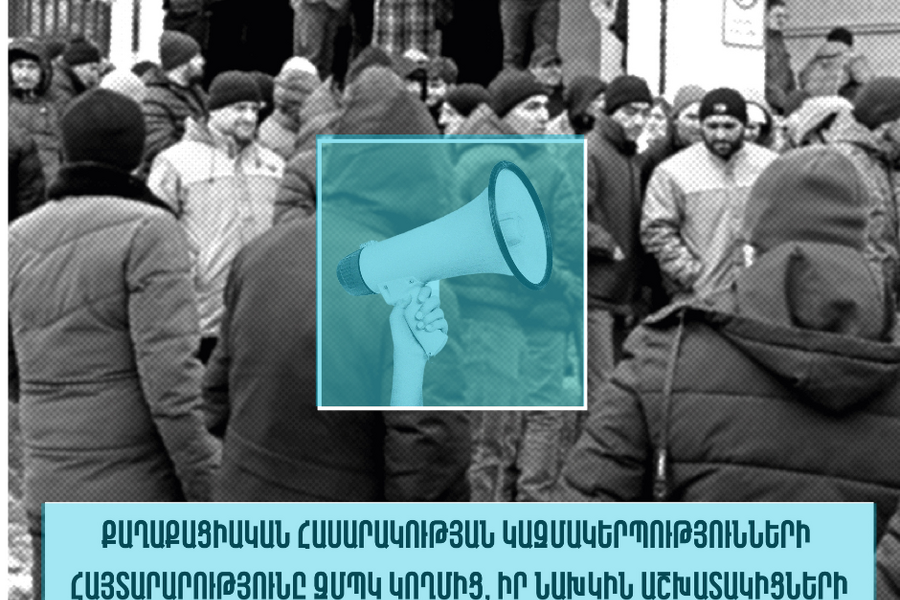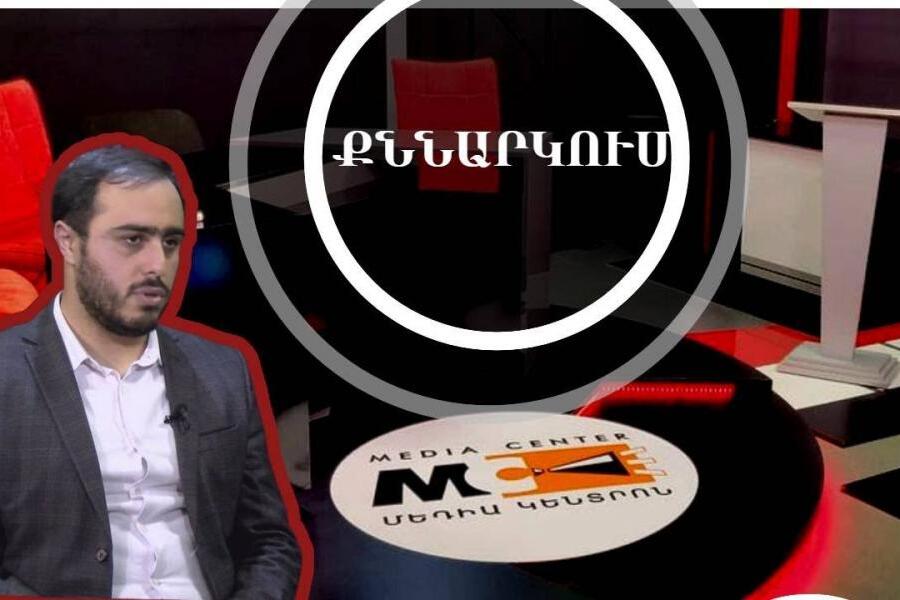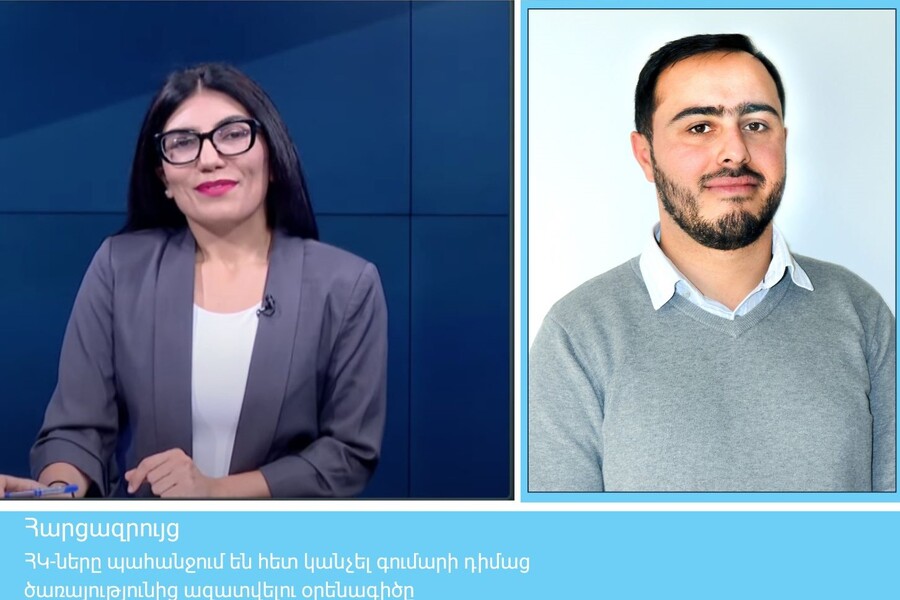Statement on the International Antiсorruption Day
The goal of thousands of citizens involved in the Velvet Revolution in 2018 was to get rid of the corrupt system and establish justice, which placed high demands on the new authorities. The new government of Armenia announced an uncompromising fight against corruption, initiated and started implementing an ambitious program of anti-corruption reforms and initiated the process of forming new anti-corruption institutions. Although many local and foreign experts and representatives of civil society criticized the quality and speed of the implemented reforms, there was a general understanding among the public that Armenia was developing in the right way and there were expectations and public support in this regard. Such an attitude was documented in public opinion survey publications, for example, in the publication on the public opinion survey, jointly conducted by Transparency International Antiсorruption Center (TIAC) and Caucasian Research Resource Center – Armenia (CRRC-Armenia) foundation.[1]
The positive developments taking place in Armenia in 2018-2019 were reflected in international reports and indexes. Thus, Armenia's score of Corruption Perception Index (CPI) of Transparency International (TI), an international anti-corruption non-governmental organization, increased from 35 to 49 after the revolution, i.e. by 14 points, which was the best result on a global scale. The World Bank's World Governance Indicators[2], including its Control of Corruption Indicator and the Democracy Score of the Freedom House international organization's Nations in Transit annual report also recorded a significant positive growth[3].
A number of challenges that Armenia has faced since 2020, including security threats, coronavirus pandemic and internal political tensions, have slowed down the reforms. Public opinion surveys began to record negative trends and growth in the international indexes has stopped.
According to the data of a telephone survey by the International Republican Institute (IRI) published in January 2022, 46% of citizens think that the country is heading in the wrong direction and only 34% think that it is heading in the right direction. On the other hand, 61% of respondents believe that the country is governed based on the interests of some groups and only 31% believe that it is governed based on the interests of the majority.[4] It is interesting to mention that, according to IRI similar survey conducted in April/May 2021, only 20% of citizens thought, that the country was heading in the wrong direction, whereas 43% were thinking that it was heading in the wrong direction.[5]
The findings of the public opinion survey published by the Caucasian Research Resource Center-Armenia Foundation (CRRC-Armenia) in November 2022 also recorded a significant decline.[6] In particular, in comparison with the results of the above mentioned research conducted by CRRC-Armenia jointly with TIAC in 2019, it was found that:
• the number of responses "the courts and the prosecutor's office are highly corrupt" increased from 12% to 32.5%;
• the number of those who think "the Prime Minister and his staff are not corrupt at all" has dropped from 75% to 34%.
• the number of respondents "the frequency of bribery cases has decreased" dropped from 91% to 66.5%,
• the number of those who think "the amount of bribes has decreased" dropped from 82.4% to 42%․
During 2022, the studies and analyses of local and international experts on corruption and anti-corruption policy, the reports from journalists covering these topics, specialized public organizations and independent experts also prove that there are obvious negative trends and problematic manifestations that question the fight against corruption, its efficiency and sometimes even the political will.
In April 2022, the Secretariat of Transparency International and the U4 International Anti-Corruption Center operating in Norway addressed the situation of corruption and anti-corruption policy in Armenia in their joint publication "Overview of Corruption and Anti-Corruption in Armenia".[7] The authors of the overview note that after the Velvet Revolution, the new authorities implemented a number of legal and institutional reforms, which brought about positive expectations and perceptions in the society in terms of reducing corruption. However, at the same time, concerns are expressed that the reforms implemented may not lead to a sustainable and continuous reduction in the level of corruption, and that there are still shortcomings in the systems for preventing and combating corruption, which, first of all, relate to the detection and confiscation of assets of illegal origin and the judicial system integrity. The authors of the overview identified the judiciary, security system, public procurement and mining as the most vulnerable sectors in terms of corruption.
In the course of 2022, in its public statements and positions (including jointly with partner non-governmental organizations) TIAC repeatedly referred to the situation of corruption in Armenia and the problems of its curbing. Summarizing, we can argue that the current challenges related to corruption are the failure of the mechanisms of checks and balances of the branches of government, problems of formation and integrity of law enforcement and judicial bodies, appointment of persons with dubious biographies to high level positions and manifestations of patronage, problematic public procurement and suspicious successes of persons affiliated to high-ranking officials in tenders, trends of convergence of politics with big business, threats of shrinking of civil space, particularly in the mining industry, general non-transparent, non-participative and non-accountable governance and the formation of new corruption schemes. These issues are currently episodic, but they can quickly deepen and form a new system of state capture, which is unacceptable.
Armenian government should seriously reevaluate its actions and failures in the field of fighting corruption and immediately take effective and efficient steps to restore public trust.
[1] https://transparency.am/hy/publication/203
[2] https://info.worldbank.org/governance/wgi/Home/Reports։ Corruption management index in 2019 compared to 2017 improved by 0.41 (increased from -0.61 to -0.2 on a scale of -2.5 to +2.5).
[3] https://freedomhouse.org/country/armenia/nations-transit/2022, https://freedomhouse.org/country/armenia/nations-transit/2021, https://freedomhouse.org/country/armenia/nations-transit/2020, https://freedomhouse.org/country/armenia/nations-transit/2019 և https://freedomhouse.org/country/armenia/nations-transit/2018։ Corruption sub-index in 2019 compared to 2017 improved by 0.5 (increased from 0.5 to 3.0 on a scale of 1 to 7).
[4] https://www.iri.org/resources/public-opinion-surveyresidents-of-armenia/ Data were collected in November-December,2021
5 https://www.iri.org/resources/iri-armenia-poll-shows-concerns-for-political-instability-skepticism-for-covid-19-vaccines-strong-voter-enthusiasm/
[6]https://www.crrc.am/hy/%D5%B0%D6%80%D5%A1%D5%BA%D5%A1%D6%80%D5%A1%D5%AF%D5%B8%D6%82%D5%B4%D5%B6%D5%A5%D6%80/9851
[7] https://www.u4.no/publications/armenia-overview-of-corruption-and-anti-corruption





